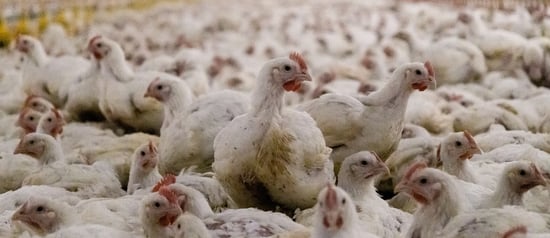
New foie gras method removes force-feeding but factory farming concerns remain
News
A breakthrough in food technology claims to offer a cruelty-free alternative to traditional foie gras, producing it without the cruel practice of force-feeding. While this is a step forward for animal welfare, it doesn’t eliminate the wider issue of factory farming.
Foie gras is typically made by force-feeding ducks and geese until their livers swell to ten times their normal size, a practice that has been widely condemned for its cruelty. The latest development seeks to bypass this process by using a scientific approach that treats a duck’s liver with its own natural enzymes to replicate the fatty texture of traditional foie gras.
Researchers at the Max Planck Institute for Polymer Research, alongside scientists from the University of Southern Denmark, developed this process by treating a harvested duck liver with lipases - enzymes that help digest fat. This triggers the fat to form large crystals that clump together, mimicking the rich, buttery texture of foie gras without the need for force-feeding.
Tests have shown that this new method produces foie gras with a similar mouthfeel and aroma to the traditional version. Professor Thomas Vilgis, who led the research, has filed a patent for the recipe and hopes to scale up production by partnering with companies interested in ethical foie gras alternatives.
“Taking the force-feeding out of foie gras is a welcome step forward for animal welfare. However, there are still many improvements to be made for animals used for foie gras,” says Lindsay Duncan, UK Farming Campaign Manager at World Animal Protection.
“Foie gras tends to be produced in factory farms where ducks and geese are confined in small cages. Forced to sit in their own waste, they are unable to play, bathe and express their natural behaviours. We urge an end to any kind of cruel factory farming. Instead, animals like ducks and geese should be allowed to roam on nature-friendly farms where they have access to water, can forage, and interact with each other. The UK needs more high welfare, nature-friendly farms.”
Ducks are incredibly social animals that thrive in groups. They are also natural foragers, playing an essential role in keeping pests and weeds at bay, making them well-suited to nature-friendly farming systems. Yet, in many foie gras farms, they are kept in barren environments that deny them these basic freedoms.
While any move away from force-feeding is a step in the right direction, the real solution lies in ending factory farming entirely. Instead of producing foie gras at the expense of animal welfare, we should be shifting towards sustainable, humane farming systems that respect the needs of animals and the environment.
The UK has already banned the production of foie gras on animal welfare grounds, but imports are still allowed. This is an opportunity to take a stand against all forms of factory farming and move towards a future where no animal suffers for the sake of luxury foods.
Call for an end to cruel factory farming
Sign our petition to the UK government and let them know that there is no future for factory farming.
